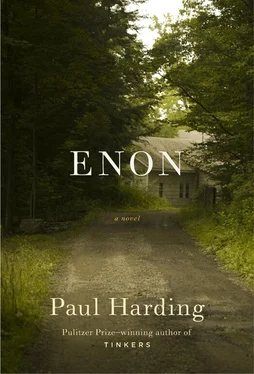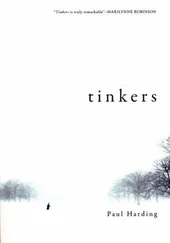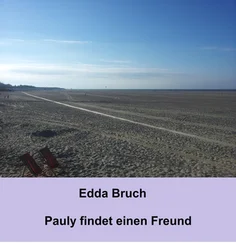I thought about that on the night of what would have been Kate’s fourteenth birthday, November 25. I sat on the couch in the living room, eating stale cereal dry out of the box, and it occurred to me that the cribbage board was in the buffet in the dining room somewhere, with its pegs still presumably where Kate and I had left them after our last and dramatic best-of-five tournament, which I had won by one point.
I SUPPOSED I COULD dig through the deep drawers in the buffet and find the board, which was made from an old bowling tenpin cut crosswise down the middle. There was a decal of a cartoon skunk at the top of the pin, above where the pegging holes had been drilled, and whenever it looked like Kate was going to beat me by at least a full street, she’d grimace and click her bottom and top front teeth together, tap on the skunk with a forefinger, sniff at the air, and say, “Oh, Fazher! I szeenk I szmell a szgonk!”
Kate had discovered the board at a yard sale we stopped at one Saturday morning, when we’d both gotten up early and had decided to walk together to the next town for coffee and doughnuts instead of driving. The woman selling the board wanted eight dollars for it.
I reached for my wallet, but Kate put a hand out and said, “Wait. Eight bucks for that crazy thing? How about two?”
The woman said, “I’ll let you have it for six.”
Kate said, “Four dollars.”
“Five,” the woman said. Kate looked at me.
I stuck out my lower lip and lifted my eyebrows and nodded my head, to signal that that was pretty good, and Kate said, “Okay, you got a deal,” and I paid the woman.
As we walked away down the sidewalk, me holding the coffee and doughnuts, Kate carrying the board, I said, “You sounded just like your great-grandfather George back there, Kate. You’re a bona fide Yankee skinflint.”
Kate grinned and said, “I love this thing, but eight bucks ?”
I washed a mouthful of the stale cereal down with a gulp of tap water from a jelly jar and thought again about how I could find the cribbage board in the buffet and bring it out and clear a space in the mess on the coffee table in front of the couch and look at the peg stuck in the dead man’s hole and think to myself, Kate put that there. That’s a little mark left in the world by Kate. I thought about how I might agonize for a while over whether I should ever remove the peg, or leave it and put it up on the mantel and make a little shrine out of it, maybe set a stick of incense in one of the empty peg holes and burn it and think about the last game we played together, ignoring the trivial, circumstantial annoyance I’d felt at the time. I didn’t want to do any of that, so I left the board buried somewhere in the layers of cloth napkins and trivets and decks of cards and candleholders and empty photograph frames and odd sheets of gift wrapping and silver steak knives, and looked for a moment out the side window in the living room at the light snow drifting in front of the streetlight onto the lawn and the driveway and the station wagon I hadn’t used in months and whose battery I was sure must be dead and wondered about what birthday presents Kate might have asked for.
I WOKE UP ON the living room couch one morning in the middle of December. The autumn had been mostly wet and mild until then. I had been taking long walks through the woods on paths lined with wet, soggy leaves that felt like vellum to step on, and up from the pagelike, pulpy folds of which little white moths innocently spun into the wrong season with nearly every step. But that morning the house was freezing. I sat up, shawled in one of my mother’s afghans, irritated at having been half-wakened repeatedly throughout the night because the afghan was too short and didn’t cover my feet and they were icy and because my dreams were full of endless, foolish arguments and wrestling matches with tireless antagonists. My breath steamed in the cold air. My throat stung and my nose ran and I was certain I must be getting sick. Half of my brain lagged behind my head rising off the couch, and I had to close my eyes and take a couple breaths and wait for it to catch up and refit itself together. The sunlight tracing the borders of the window shades detonated bursts of purple and green hydrangeas in the foreground of my vision, and my head pounded. I reached for the bottle of painkillers. I was too groggy to take any so soon, but the fog from the previous night’s pills and whiskey would burn off in a few hours and, after a long afternoon nap, I’d wake at dusk and want the night’s first dose to soothe myself. I picked up the bottle and put it next to my ear, smiled at the idea of the sight of myself half-playing a burnout, and gave it a little shake. It sounded like there were only two or three pills rattling around. My wry — romantic, even — image of myself evaporated and I shook the bottle again and listened to the rattling and tried to guess the greatest number of pills it could possibly indicate, as if the number in which I could reasonably convince myself to believe before I looked might influence the number of pills I found when I actually opened the bottle. I thought to myself, Be careful, Charlie; this is very tricky business, very fragile stuff you’re playing with here. One false move, one lapse of concentration, and you could be very, very screwed. But that very thought was the lapse itself, I realized.
My broken hand still ached most of the time. Even loaded on pills and whiskey, I could always feel pain thumping through it. The breaks were bad enough that I’d been able to convince the different doctors I’d seen to give me two more bottles of painkillers after the first. Since I had no health insurance, I saw whoever was on duty at the walk-in clinic. One doctor, a woman I was startled to realize might be younger than I, with freckles and what I’d always called a boy’s haircut, dressed in men’s khakis and a man’s blue oxford shirt, told me I needed to get into physical therapy.
“Your hand’s going to wither away if you don’t do exercises,” she said. “You’ve got to stretch your fingers, flex them, start squeezing a ball.”
“I know it,” I said. “The thing kills all the time, though, still. I still can hardly even sleep with it.” She held my hand gently in hers and moved each finger in turn by putting a very slight amount of pressure against the tip. I sucked my breath in, because it hurt, but also to convince her that my need for more medicine was genuine. I lied, “I rolled over on it the other night and it felt like I rebroke it all over again.”
“Well, here’s some information about PT,” she said. “You really need to get on it. I’m going to give you some more of the painkillers, but I also have some concerns about that. Do you think it’s becoming a problem?”
“Jesus, I hope not,” I said. “I’m scared half to death of those things — getting hooked on them — but it’s really the only way I get any rest.”
“Okay. Try not to take them unless you really need one. Try to hold out as long as you can each time. Push on your pain threshold. Try taking just half of one. Try aspirin or ibuprofen instead. You really don’t want to get tangled up with this stuff. This should be the last script you get for them.”
“Got it,” I said. “And I’ll call for the PT first thing next week. Thanks so much, Dr.”—I looked at her name tag—“Dr. Winters.”
I opened the bottle and found a pill and a half. I tried to count how many pills I’d taken the night before — the two to begin, and a third I had intended to take two hours later, and another an hour after that, and another half pill an hour later, but I thought maybe I hadn’t split a fifth pill but had taken it whole, then maybe decided later that another half would be fine so long as I didn’t drink the whiskey any faster — and I could not make a clear tally. It all just blurred together.
Читать дальше












